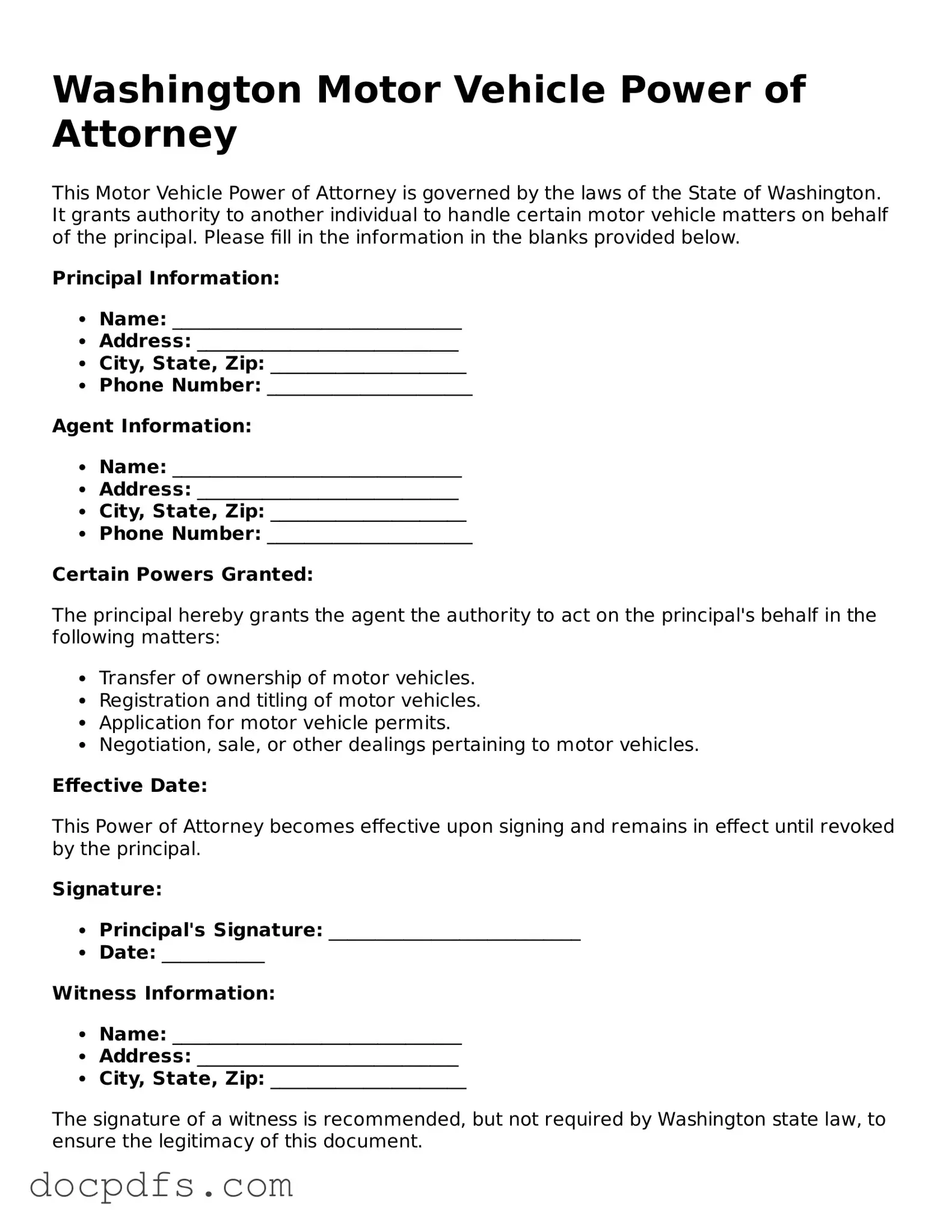Free Washington Motor Vehicle Power of Attorney Form
The Washington Motor Vehicle Power of Attorney form allows an individual to authorize another person to handle specific vehicle-related tasks on their behalf. This document is essential for those who need someone to manage vehicle transactions, such as registration or title transfers, while they are unavailable. Understanding how to properly use this form can simplify the process and ensure that all actions are legally valid.
Open Motor Vehicle Power of Attorney Editor Now

Free Washington Motor Vehicle Power of Attorney Form
Open Motor Vehicle Power of Attorney Editor Now

Open Motor Vehicle Power of Attorney Editor Now
or
⇓ Motor Vehicle Power of Attorney
Finish this form the fast way
Complete Motor Vehicle Power of Attorney online with a smooth editing experience.